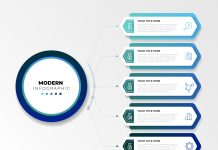Data quality, indeed, is the deciding factor in your B2B lead generation between a success or failure in today’s data-driven business environment. Powerful data makes powerful leads, and powerful leads feed successful businesses. Focusing on accurate data is important to keep your company ahead of the game; empowered decisions, right target, and sustainable growth.
Data quality is crucial in B2B lead generation, but how do you optimize data for better marketing and sales? This blog discusses the importance of maintaining good data quality along with actionable insights on how to improve it!
What is Data Quality?
The quality of the data is assessed based on its accuracy, completeness, consistency, timeliness, and relevance — it describes the overall reliability of your data. Top-notch data helps businesses to make smart decisions and drive the full potential of their lead generation activities.
Key Elements of High-Quality Data:
- Accuracy: Data must be free from errors and reflect reality.
- Completeness: All necessary information should be present.
- Consistency: Data should align across all systems and formats.
- Timeliness: Up-to-date data ensures relevancy.
- Relevance: Data must align with the intended purpose.
Why Data Quality Matters in B2B Lead Generation
High-standard data forms the backbone of effective B2B lead generation. Here’s how it makes a difference:
- Targeted Marketing
Precise data enables you to identify and reach the right audience, ensuring your marketing campaigns focus on potential leads most likely to convert. - Improved Campaign Performance
Clean data allows for better segmentation and personalization, boosting engagement rates and campaign success. - Enhanced Customer Insights
Reliable data reveals valuable insights into customer behavior and preferences, enabling you to tailor your offerings effectively. - Informed Decision-Making
Accurate data supports better business decisions, optimizing resource allocation and improving lead generation strategies. - Higher ROI
Focusing on high-potential leads while reducing inefficiencies leads to a better return on investment.
Common Data Quality Challenges in B2B Lead Generation
Despite its importance, maintaining data quality can be challenging. Some common issues include:
- Duplicate Records: Repeated entries for the same lead create confusion and inefficiencies.
- Incomplete Data: Missing information makes it difficult to fully understand and engage with prospects.
- Outdated Data: Stale data leads to missed opportunities and misguided campaigns.
- Inconsistent Data: Variations in data formats disrupt synchronization across systems.
Example:
Imagine a marketing team working with outdated contact details for potential leads. Efforts to connect with these leads fail, wasting resources and impacting ROI.
How to Improve Data Quality
Improving data quality requires continuous effort and robust strategies. Here are some practical steps:
- Conduct Regular Data Audits
Periodically review your data to identify and rectify errors, duplicates, and inconsistencies. - Data Cleansing
Remove outdated, inaccurate, or irrelevant information to ensure your database remains reliable. - Standardize Data Formats
Establish uniform data standards to maintain consistency across systems. - Use Automation Tools
Leverage tools like HubSpot or Salesforce to streamline data management processes, reducing manual errors. - Train Your Team
Educate employees on the importance of accurate data entry and management practices.
Conclusion
Investing in reliable data is no longer optional; it’s a necessity for any business aiming to thrive in B2B lead generation. Accurate, complete, and relevant data ensures that your marketing efforts are targeted and efficient, driving higher engagement and better ROI. By adopting robust data management practices and tools, businesses can stay ahead of the curve and create a competitive advantage in today’s data-centric world.
Prioritize data quality today to ensure success tomorrow. Your leads—and your business—depend on it.









